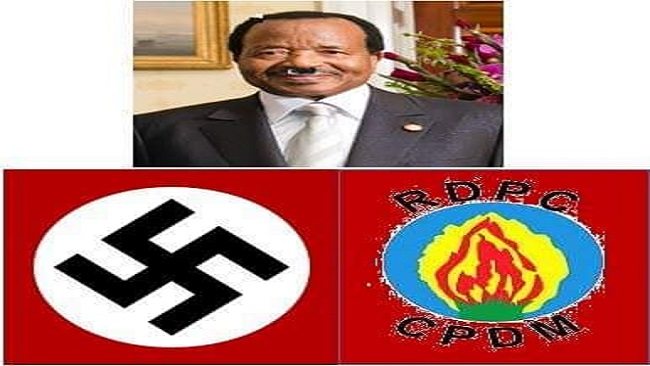Southern Cameroons Crisis: Trump Must Put Real Pressure on Biya
Symbolic half-measures like revoking preferential trade status are not enough to force the repressive regime of Paul Biya to change. Canceling IMF loans and military aid would show that the White House is serious.
On Oct. 31, the Trump administration notified Congress that Cameroon would lose its eligibility status under the African Growth and Opportunity Act (AGOA) in 2020. “Cameroon has failed to address concerns regarding persistent human rights violations being committed by Cameroonian security forces,” the White House statement explained, in what is the toughest executive branch language issued about escalating crises in Cameroon, building on a congressional resolution agreed to in July.
The announcement quickly caught fire on social media, a sign of hope for Cameroonians and others who have long called for more external pressure on the country’s octogenarian president, Paul Biya, who has been in power since 1982.
But taking away Cameroon’s AGOA privileges—primarily duty-free access for designated products exported from eligible African countries to the United States, including textiles—will not cause much pain. It will not compel Biya to undertake much-needed political and economic reforms to solve the crisis in the country’s Anglophone region and the related violence driving a humanitarian catastrophe, the deep-rooted governance crisis that includes mass arrests of political opponents and journalists, and an economic meltdown that has been partly concealed by oil-related revenue and ongoing bailouts by international lenders.
The humanitarian crisis gets worse by the month: The Norwegian Refugee Council calls Cameroon the world’s most neglected displacement crisis, while UNICEF reports there has been a “15-fold increase” in the humanitarian emergency there since 2017. The real test of the Trump administration’s resolve on Cameroon will be whether it acts to curtail all military assistance, imposes targeted travel and economic sanctions on individuals, and uses its considerable leverage to punish the Biya regime through international financial institutions and at the United Nations.
Members of the Biya government know that removal from AGOA won’t do much damage. Indeed, CNN recently interviewed an official at Cameroon’s Ministry of External Relations, who pointed out that the country barely benefits from AGOA and that the Trump administration is only trying to punish Cameroon because of its growing ties to China. Indeed, Washington’s move could push Cameroon and other African states further into the waiting arms of China and Russia—countries that do not ask questions about human rights.
This raises the question of why the Trump administration, which is preoccupied with much bigger domestic and foreign-policy challenges, decided to take a high-profile but symbolic stance now and if it is truly seeking to take a tougher line against Biya.
Unlike most reciprocal trade agreements or international financial institution regulations, AGOA includes economic, political, and human rights criteria that make it easier for the U.S. government to find justifications for change in status. These criteria include progress toward establishing “the rule of law, political pluralism, and the right to due process, a fair trial, and equal protection under the law” and that a country “does not engage in gross violations of internationally recognized human rights.” Other countries whose beneficiary status has been withdrawn include Burundi (since 2016), Mauritania (since 2019), and South Sudan (since 2014).
Unlike many other African countries, Cameroon never cultivated the AGOA preferences to drive private sector development, investment, employment, and exports. Today, the United States just squeaks into the list of its top 10 trading partners. Total AGOA-eligible exports reached $63 million in 2018, mostly crude oil, and had already dropped to just $8 million in the first six months of 2019.
Shortly after AGOA was signed into law in 2000, construction started on the Chad-Cameroon pipeline, part of a massive project spearheaded by ExxonMobil to export crude oil from southern Chad. Today, Cameroon’s government receives a $1.32 transit fee for every barrel that flows from Chad through to the export port of Kribi. It also benefits directly from its own modest offshore oil and natural gas production, and further reserves await development.
The nature of governance in Cameroon has always relied on rentier (or gatekeeper) state opportunities—including tropical agriculture, timber, oil, and, more recently, soccer stadiums— over establishing the complex foundations for internationally competitive, value-added industry. There is no desire by the regime to break from its resource curse. It is not a surprise, then, that Cameroon sits near the bottom of Transparency International’s Corruption Perceptions Index or the World Bank’s Doing Business rankings, and it does not come close to passing the governance thresholds of the Millennium Challenge Corporation.
Culled from Foreign Policy




